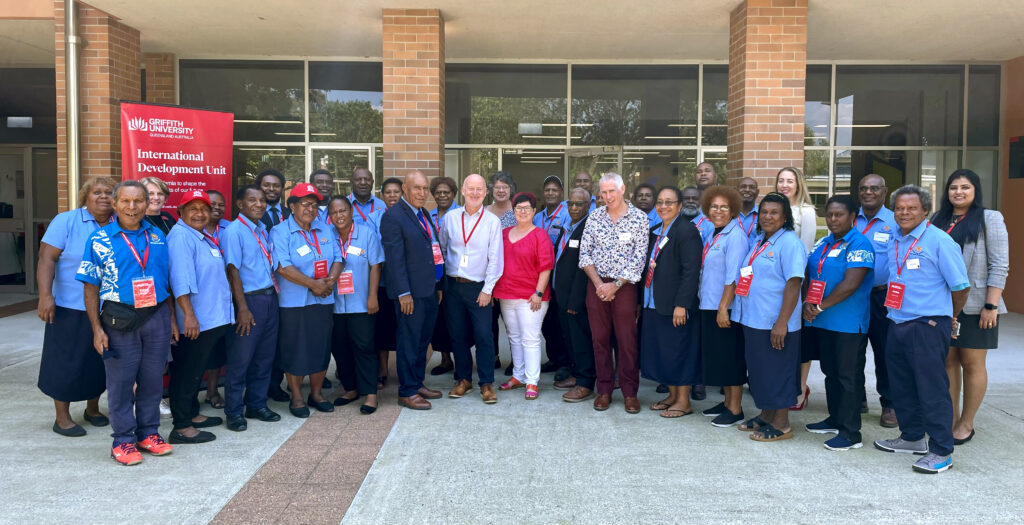Project Description
The four-week Short Course was delivered in person at Griffith University’s Logan campus in Queensland, with participants accommodated in Brisbane and daily transportation provided. Prior to arrival, a pre-departure online workshop prepared participants for travel, introduced Australian culture, and outlined course expectations.
Drawing on Griffith’s existing expertise in Papua New Guinea’s social and institutional contexts, the Counselling Course adopted a practice-based and experiential learning model. Teaching included expert-led seminars, workshops, group activities, role-plays, and case studies, all underpinned by adult learning principles and participants’ professional experience in education and counselling. A highlight of the programme was the use of Griffith’s Simulated Learning Environment (SLE), which allowed participants to practise, reflect on, and refine counselling techniques in a realistic setting.
By the end of the Course, participants had developed practical strategies tailored to their work environments, supporting their professional practice and capacity building upon return to PNG.
Project Personnel and Beneficiaries
The Counselling Short Course brought together 27 participants; 13 females and 14 males from Papua New Guinea’s National Department of Education, representing districts from across the country. The group included senior staff members, with two Acting Assistant Secretaries among them. Their varied backgrounds enriched the learning experience and fostered meaningful dialogue on counselling and education.
Delivered at Griffith University, the course centred on practical and experiential learning, with extensive engagement from expert lecturers, practitioners, and human services professionals.
Participants took part in workshops, seminars, and site visits, connecting with leading organisations in education and social support, such as primary and high schools, guidance units, and the Kurbingui Indigenous Community Centre. These interactions broadened participants’ professional networks and deepened their practical skills in counselling.

Outcomes to Date
Following completion of the course, participants demonstrated a marked improvement in their understanding and application of counselling theories and skills, particularly in working with children and families. They showed greater awareness of both social and individual challenges such as family violence, gender-based violence, substance use, and gambling, recognising the impact these issues have on children and families. Participants also gained insight into the experiences of people with disabilities and successfully applied person-centred planning approaches within educational and familial settings. Furthermore, they developed a deeper understanding of trauma and its effects, enabling them to implement trauma-informed care principles in their professional practice.
Project Significance
Consultations between the Graduate Certificate in Counselling Australia Awards programme and the National Department of Education in Papua New Guinea (PNG) led to the identification of a need for a dedicated Counselling Short Course. This initiative aimed to support guidance officers and other education personnel in acquiring essential counselling knowledge and skills. Key areas of demand for counselling services were outlined, including family and relationship issues, gender-based violence, trauma-informed care, child and youth protection, disability and rehabilitation, and challenges related to alcohol, drug use, and gambling.
The Short Course was designed to strengthen the capacity of PNG educational professionals and foster linkages to enhance counselling practice. It responded to sector needs by providing targeted training to improve wellbeing outcomes for children, families, and communities across the country.

